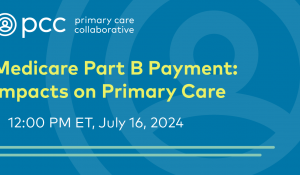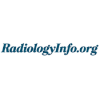The Patient Preferences Passport is a user-friendly tool patients can use to take ownership of their care. Additionally, the guide outlines how to effectively implement the tool in practice settings.
Patient Activation
The Centers for Medicare & Medicaid Services (CMS) identified six key focus areas to measure effective patient and family engagement in clinical practice. The intent of this metric is to use a standard method to measure a patient’s activation, which is the level of a “patient’s knowledge, skills, ability, and willingness to manage his or her own health and care.”
Related Resources
October 2014
A comprehensive look at the evidence and strategies for using patient activation to improve health outcomes and patient experience.
The King's Fund
October 2016
This learning module provides an overview of Patient and Family Advisory Councils and outlines the steps for creating one. A number of templates councils can use are provided, and 0.5 CME credits are available upon completion.
American Medical Association, AMA Steps Forward
October 2017
Tool for patients to effectively record discussions, decisions made and follow up items from an appointment.
AHRQ
October 2017
The Be Prepared To Be Engaged toolkit will help patients and their families prepare for and become more fully engaged in their medical appointments—to be ready for the appointment, to speak up, to ask questions, to take notes. Tools are also available for clinicians and practice staff to...
AHRQ
October 2019
Resource bank to help primary care providers and practices promote and integrate peer support. Some are available in Spanish.
University of North Carolina at Chapel Hill
October 2014
This four minute video provides a overview of the Patient-Centered Medical Home, and how it can improve our healthcare system for both patients and providers.
Emmi
October 2019
The go-to resource for latest updates and background information on the Quality Payment Program (QPP) from the Centers for Medicare and Medicaid Services (CMS).
CMS
September 2019
Patient portals are becoming more prevalent, as healthcare providers, payers, and patients become more comfortable with their use. A 2017 survey found that 82% of patients reported having logged into their provider’s patient portal at least once – a drastic change from a similar 2013...
Patient Portals: How can they impact primary care?
October 2018
This peer-reviewed report on health care transition for pediatric to adult health care includes a process for transition preparation, planning, tracking, and follow-through and is based on more than two decades of evidence-based research. A special focus is placed on young adults with special...
American Academy of Pediatrics
September 2018
The toolkit contains educational materials and training templates for effectively engaging patient advisors in research projects. Materials can be tailored for each research project.
Health Innovation Program, University of Wisconsin, Wisconsin Network for Research Support
April 2018
This document outlines how patient and family engagement activities can improve health outcomes and achieve TCPI program-specific metrics, which align with quality payment program standards. Links to additional resources for a deeper dive are also provided.
Northern New England Practice Transformation Network
April 2018
This document outlines how the Choosing Wisely program can help practices achieve TCPI program aims, which align with the Quality Payment Program.
Maine Quality Counts, PCPCC
April 2018
This comprehensive guide provides primary care practices with four strategies that they can adopt to improve patient safety and engagement.
AHRQ
April 2018
Five modules and links to a wide-range of resources for moving patients forward on the patient activation continuum. The tools are listed by category, and include Activation, Communication, Decision Aids, Self-Management and Shared-Decision Making.
Military Heath System
March 2018
The Mayo Clinic Shared Decision Making National Resource Center provides decision aids and decision-making techniques. Tools are available for specific conditions and in English and Spanish.
Mayo Clinic
March 2018
Guidelines for which imaging tests providers should, or should not, order for different patient symptoms, medical histories, and health status. The recommendations are reviewed every year using an expert panel.
American College of Radiology
March 2018
This site contains information for patients to prepare for radiation exams, therapies or procedures. There are over 230 procedure, exam and disease descriptions available.
Radiological Society of North America, Inc. (RSNA)
February 2018
Learning module highlighting steps for developing and implementing health coaching models within practices offered by American Medical Association STEPS Forward. Participants can earn 0.5 CME Credits.
American Medical Association, AMA Steps Forward
September 2017
Five recorded learning network calls lead by a pediatric quality improvement expert showcasing pediatric practices that have improved asthma care quality, and links to supplemental resources (some in Spanish).
PCPCC
Pages
Secondary menu
Copyright © 2024 Primary Care Collaborative










